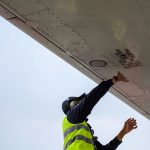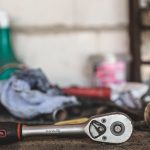Aircraft mechanics, like other aviation certificate holders, are subject to many regulatory requirements – both with respect to obtaining their certification as well as how they exercise the privileges of their certificates. And although mechanics may be familiar with these obligations, sometimes it helps to be reminded of some of the specific requirements with which they must comply.
To that end, here is a short list of some of the regulatory requirements relating to mechanics and performance of aircraft maintenance.
- An aircraft mechanic may perform maintenance, preventative maintenance or alteration of an aircraft part/appliance for which he or she is rated, BUT the mechanic must have previously performed the work. The mechanic may also supervise that work provided that he or she has previously performed that work. 14 C.F.R. § 65.81.
- An aircraft mechanic may not exercise the privileges of his or her certificate/rating unless the mechanic has satisfied the recency of experience requirements of 14 C.F.R. § 65.83 within the preceding 24 months.
- An aircraft mechanic may approve and return to service an airframe or engine (including related parts/appliances) or perform a 100 hour inspection on either, but ONLY IF he or she holds the appropriate rating, i.e. Airframe and/or Powerplant. 14 C.F.R. §§ 65.85 and 65.87.
- The holder of a mechanic certificate must keep the certificate within the immediate area where he or she normally exercises the privileges of that certificate and must present it for inspection upon the request of the FAA or NTSB. 14 C.F.R. § 65.89.
- An aircraft mechanic who holds inspection authorization (“IA“) may only exercise IA privileges while also holding a currently effective mechanic certificate with airframe and powerplant ratings. And, the mechanic must have a fixed base of operation with appropriate equipment, facilities and inspection data. It is important to remember that this is FSDO specific. If the IA holder wants to exercise IA privileges within the service area of another FSDO, he or she must notify the new FSDO. 14 C.F.R. §§ 65.92 and 65.95.
- The IA is renewable for a 2-year period on March of each odd-numbered year. The renewal requirements include the performance of certain maintenance activities or attendance at a refresher course acceptable to the FAA – all to confirm that the IA holder is “actively engaged.” 14 C.F.R. § 65.93.
- An aircraft mechanic’s IA must be available for inspection by (1) an aircraft owner, (2) another mechanic seeking certain approvals, and (3) upon request of the FAA, NTSB, or any Federal, State, or local law enforcement officer. 14 C.F.R. § 65.95.

- An aircraft mechanic who approves or disapproves for return to service an aircraft, airframe, engine, etc. after inspection must, among other requirements, make an entry in the maintenance record containing the type and description of the inspection, the date of the inspection and aircraft total time in service, and the mechanic must provide a signature and certificate number. 14 C.F.R. § 43.11.
- If a mechanic performing a required inspection finds an aircraft unairworthy or not in compliance with the type certificate data, AD’s, or other approved data, that person must give the aircraft owner or lessee a signed and dated list of discrepancies and applicable equipment within the aircraft must be placarded “inoperative” as appropriate. 14 C.F.R. § 43.11.
This list is by no means all-inclusive. An aircraft mechanic is subject to many more regulatory requirements. However, this list highlights some of the requirements most pertinent to an aircraft mechanic’s exercise of his or her privileges. And even though an aircraft mechanic may deal with these issues on a frequent basis, a quick refresher never hurts.


